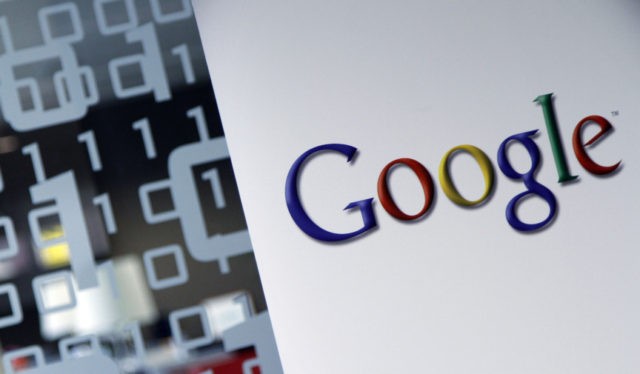Internet giant Google expressed concerns on Thursday that Singapore’s new censorship law, the “Protection from Online Falsehoods and Manipulation Act,” could stifle innovation by threatening online media platforms with huge fines for carrying content the government decides is “fake news.”
“We remain concerned that this law will hurt innovation and the growth of the digital information ecosystem. How the law is implemented matters, and we are committed to working with policymakers on this process,” Google told Reuters, pointing to Singapore’s importance as a financial hub and its desire to assume a similar position of importance in information technology.
Singapore, in turn, claimed it needed tough laws against online disinformation because of its role as a financial hub.
Reuters noted Google is far from alone in worrying about the new Singaporean law, which could easily empower the government to censor information for political purposes or threaten foreign companies with financial ruin:
“We remain concerned with aspects of the new law which grant broad powers to the Singapore executive branch to compel us to remove content they deem to be false and to push a government notification to users,” Simon Milner, Facebook’s Asia-Pacific vice-president of public policy, said.
Milner said Facebook hoped that the ministry’s reassuring statements led to a “proportionate and measured approach in practice”.
Facebook and Singapore clashed late last year when the company refused to remove a post of an online article about the city-state’s banks and Malaysia’s scandal-linked 1MDB state fund, that the government said was “false and malicious.”
Singaporean officials cited Facebook’s refusal to take down that 1MDB post as one of the reasons it needed tougher legislation against “fake news.” Government officials declared they could no longer rely on Facebook to “filter falsehoods or protect Singapore from a false information campaign.”
Prime Minister Lee Hsien Loong sued the author of the post in question, financial adviser Leong Sze Hian, for defamation for claiming Lee used his office to help corrupt Malaysian officials launder money pilfered from the gigantic 1MDB fund.
Leong and his defenders dismissed the suit as an abuse of the legal process intended to suppress free speech, noting that Leong himself did not even write the material Lee considered defamatory – he merely used his Facebook page to share an article written by someone else, without comment. In March, Leong lost a counter-suit he filed against Lee alleging abuse of the court and was ordered to pay Lee’s court costs. Leong’s appeal against this judgment is scheduled to be resolved in September.
Free speech advocates often mention the court battle between Leong and Lee as a reason to be nervous about Singapore’s new law, since Leong became embroiled in years of expensive litigation for sharing something written by a third party, and Facebook came under Singapore’s guns for allowing him to share it.
The chain of actionable “guilt” for sharing “fake news” could stretch through multiple layers of users and platforms, turning the services provided by companies like Google and Facebook into high-risk endeavors where they could face hefty penalties and regulatory action for anything posted by their millions of users.
Phil Robertson of Human Rights Watch (HRW) told Reuters the Singaporean law will “have a chilling effect on Internet freedom throughout Southeast Asia” and threatens to set off “a new set of information wars as they try to impose their narrow version of ‘truth’ on the wider world.”
Other activist groups and Internet companies are trying to get a seat at the table by petitioning Singapore to enlist them as advisers. Free speech activists are deeply concerned that the law does not precisely define “false statements” or the “public interest,” giving officials potentially unlimited power to clamp down on any speech that displeases them. The Protection from Online Falsehoods and Manipulation law was passed on Wednesday and will go into effect during the remainder of May.
The BBC on Thursday found Singaporean ministers eager to go after private and encrypted messaging services like WhatsApp and Telegram since even private conversations are covered by the prohibition against spreading “false statements against the public interest.”
“Closed platforms, chat groups, social media groups, can serve as a public megaphone as much as an open platform,” declared Senior Minister of State for Law Edwin Tong.
Officials did not explain how they expect to monitor and police private chat conversations, an especially difficult proposition given that service providers have resolutely refused to provide backdoor access or decryption keys to government agencies. HRW’s Robertson called Singapore’s determination to police private chat “frankly insane” and called it a “direct threat to freedom of expression” that “the entire world should be alarmed about.”
One reason for such alarm is the interconnectedness of the global economy. Singapore has considerable leverage over foreign corporations and could use it to make them obey its speech codes, as China does with increasing frequency – to the point where Beijing is now censoring the content of American television shows.
Censorship demands do not have to be issued as direct edicts from authoritarian officials to foreign CEOs. All that is necessary is to create an environment where everyone knows what will displease the authorities, and everyone understands that displeasing the authorities brings huge financial penalties from lost market access. Who wants to be the first social media provider to find out what punishment Singapore is prepared to inflict on those who allow users to spread “false information” against the “public interest,” in either public posts or private conversations?

COMMENTS
Please let us know if you're having issues with commenting.